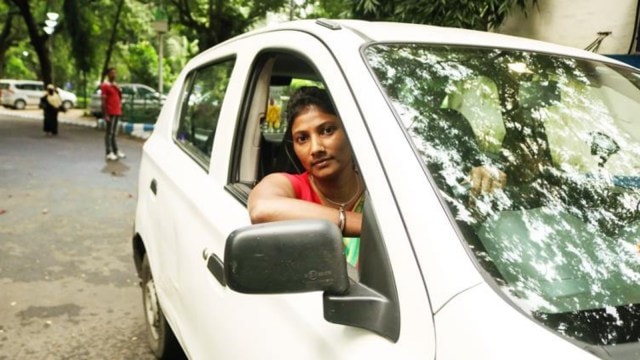
The other day at the gym, a group of men were discussing the limited availability of parking spots around the fitness club. The conversation soon turned towards parking etiquette. Their ire was directed at a particular SUV whose errant positioning, they complained, would often occupy the space meant for two vehicles. No prizes for guessing who drives the car, one of them quipped; his tone making his implication clear. This is what happens when women start driving big cars, another chuckled. There was a round of laughter and the men went their separate ways.
The cliché about women being bad drivers is as fresh as curdled milk. Its infamy is, perhaps, second only to the caricature of the nagging wife. In gags and skits, these stock female characters have been mocked for generations. While this genre of jokes is best ignored — engaging with content of this nature can play havoc with your social media algorithms — the quips about women drivers never fail to rile me up. Being raised in a household where two generations of women took the wheel can do that to you.
One of my earliest childhood memories is of my daadi driving an ancient blue Ambassador, and the delightful sight of a diminutive, white-haired woman wrestling the large steering wheel into submission and shouting at jaywalkers. While stories of my daadi’s driving exploits were mostly hearsay for me, I bore witness to my mother’s driving journey from the very beginning. As a child, I accompanied her on her driving lessons; later, I became her primary passenger on school runs and market visits. As a woman driving her family around, my mother was a novelty in the suburban Kolkata of the 1990s and early 2000s. I was always aware that what was normal for me was unique to many others in our milieu.
Much has changed since then. Women drivers are hardly a rare sight in metropolises anymore. As per a news report last year, nearly 36 per cent of the driving licenses issued in Mumbai were to women. The share of women buying SUVs — the stereotypical “male” car — has reportedly increased over four-fold in the past five years. In recent years, female participation in the public transport workforce has also seen a rise: From women-operated cab services to state transport bodies. Last year, in June, the Maharashtra State Road Transport Corporation deployed its first-ever batch of women drivers. Now, it counts over 120 of them in its ranks. But beyond the statistics, driving is also viewed as a tool of empowerment.
In the movie Piku, when the titular character (played by Deepika Padukone) says she does not like driving, Rana (Irrfan Khan) tells her that “driving liberates a woman”. To establish this point, he refers to the activism of women in Saudi Arabia, who braved arrests and state reprisals for years in the fight for their right to drive. Three years after Piku’s release, the Gulf kingdom finally lifted the ban on women drivers in 2018.
The moment when Saudi women could legally drive in their own country for the first time — on June 24 — became a day of celebration. The Women’s Worldwide Car of the Year (WWCOTY), a multi-national collective comprising exclusively of women motoring journalists, was created in 2009 and strives to “give visibility to women in the automotive world”. In the years following the reversal of the Saudi ban, the WWCOTY has designated June 24 as “International Women Drivers’ Day” as part of its campaign to attract international attention around this issue.
To the cynical, earmarking certain days and investing them with symbolic meaning can feel performative. Such “special days” are, predictably, claimed by corporate strategists as an occasion to promote their brand as being socially-aware and to send the right signals to their consumers. Moreover, when focussing on a single day as a moment of significance, we can end up ignoring the complexities of ground realities. For instance, human rights groups have flagged that even after the lifting of the ban, deep-rooted social and cultural barriers continue to impede Saudi women’s ability to drive.
These shortcomings, and the reams of internet content lampooning the driving capabilities of women, can lead one to view efforts like the “International Women Drivers’ Day” as whimsical and ineffectual. Nevertheless, highlighting such “special days” can still offer some benefits. For one, they can shine the spotlight — if only for a short while — on matters that are usually relegated to the margins in public discourse. They can help trigger conversations and bring awareness to issues that may otherwise be overlooked. And they can also offer the opportunity to examine the pernicious effect of so-called “casual and harmless” jokes.
Under the façade of humour, the seemingly innocuous jibes about women drivers reinforce stereotypes and prejudices that they eventually have to battle on the roads. A quirk of fate made me impervious to this prejudice. But the International Women Drivers’ Day is as good a time as any to remember that being raised by a woman who drives, should not be the only thing that stops us from laughing at punchlines taking aim at women drivers.
The writer is a Mumbai-based lawyer


